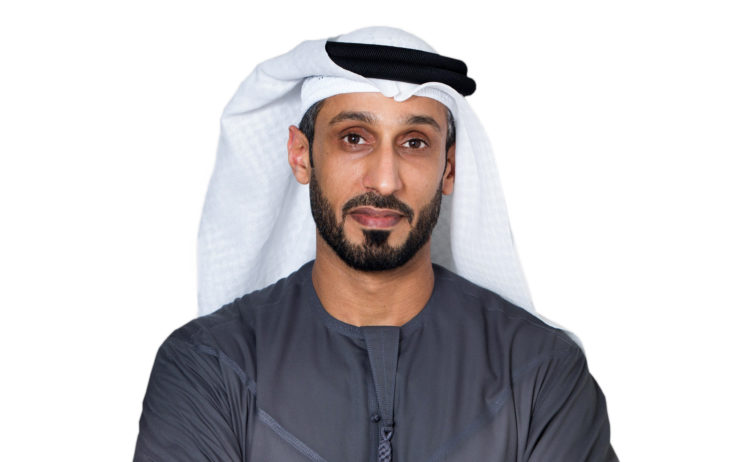Dubai Future Foundation Issues Report On Future Of Humanitarian Work Post-COVID-19

Dubai Future Foundation, DFF, in cooperation with the Dubai Future Council for Humanitarian work, today issued a report on the Future of Humanitarian Work in the country. The report underscored that the health challenges the world is witnessing have accelerated the adoption of advanced technologies in various aspects of humanitarian work.
Titled ‘Future Trends: The Future of Humanitarian Work’, the report is part of DFF’s series of future-focused reports, with its launch coinciding with the United Nations’ celebration of World Humanitarian Day on August 19. This day serves to commemorate humanitarian workers injured in the line of duty while providing vital support and protection to the people most in need.
Saeed Al Eter, Assistant Secretary General of Mohammed bin Rashid Al Maktoum Global Initiatives, MBRGI, and Chairman of Dubai Future Council on Humanitarian Work, said that the UAE is one of the world’s leading countries in the field of humanitarian work and has successfully delivered medical, health, food and educational aid to tens of millions of people in need around the world over the past several months.
He noted that this was possible as a result of the nation’s various global humanitarian initiatives, positive synergies with various countries and the keenness of its leadership to support friendly and brotherly countries, especially during the difficult circumstances and challenges imposed by the novel coronavirus.
He added: “The Dubai Future Council for Humanitarian Work is engaging with specialists to study mechanisms to strengthen humanitarian services in the future. In line with this priority, it aims to accelerate the delivery of humanitarian aid to communities in need around the world through leveraging modern innovations that contribute to strengthening the UAE’s position as a global model for humanitarian work.” For his part, Khalfan Jumaa Belhoul, CEO of the Dubai Future Foundation, said: “Modern technology will play a crucial role in improving the humanitarian sector and enhancing its effectiveness.
Through relying more on data and information analysis and strategic planning, it will be possible to respond to humanitarian crises around the world immediately and effectively.” Belhoul pointed out that the report serves as a comprehensive guide to all government and private sector companies involved in the humanitarian work sector in the UAE and abroad on the importance of adopting safe technology solutions.
The report reviewed several pioneering Emirati projects and initiatives in the field of humanitarian work, including the Mohammed bin Rashid Al Maktoum Global Initiatives, MBRGI, a leading global philanthropic organisation that has invested heavily in developing its e-learning platform, ‘Madrasa’ to provide free educational content for children across the Arab region, in addition to shaping innovative offline solutions to educational challenges. Madrasas was recognised by UNESCO for its role in providing powerful digital learning solutions to help children across the world continue their education amid recent school closures.
Dubai Cares, which is part of MBRGI, has joined the UNESCO’s Global Education Coalition for COVID-19 response, a multi-sector partnership between international organizations, the government and private sector and civil society, to help countries develop ‘distance learning’ solutions and accelerate the adoption of technology in digitalising the education sector.
The report also highlights the major role played by the International Humanitarian City, IHC, in Dubai in supporting and facilitating first responses to crises at the global level. IHC has redoubled its efforts over the past few months to provide support to the communities affected by the COVID-19 pandemic around the world, in cooperation with the World Health Organisation, WHO.
The report stated that the global health challenges following the COVID-19 outbreak, have imposed multiple new impediments for the humanitarian sector, underpinned by the need for more health equipment and medical screening devices, and the suspension of several logistical services and supply chains. These issues have consequently hampered the speed and effectiveness of aid distribution. In addition, the secondary economic impact of the pandemic and the measures taken to contain it, such as increased unemployment, reduced global remittances and worsening poverty rates, have exacerbated the need for humanitarian and medical aid.
The report emphasised the need to focus on investing in building local capacities in the areas of humanitarian and development work to ensure the long-term sustainability and self-sufficiency of communities.
Furthermore, it highlighted the need to increase efficiency in the distribution of limited resources, and to implement proactive measures instead of response mechanisms. Through Identifying and reducing vulnerabilities and developing risk management plans, nations can help prevent the occurrence of crises, instead of needing to manage crises.
The report also noted that the availability of limited resources during the economic crisis post-COVID-19 will restrict donors’ capacity to fund the initiatives of various non-governmental organizations. Therefore, NGOs will need to review their business models, and diversify their sources of income rather than depending on a single funding stream and on public contributions.


